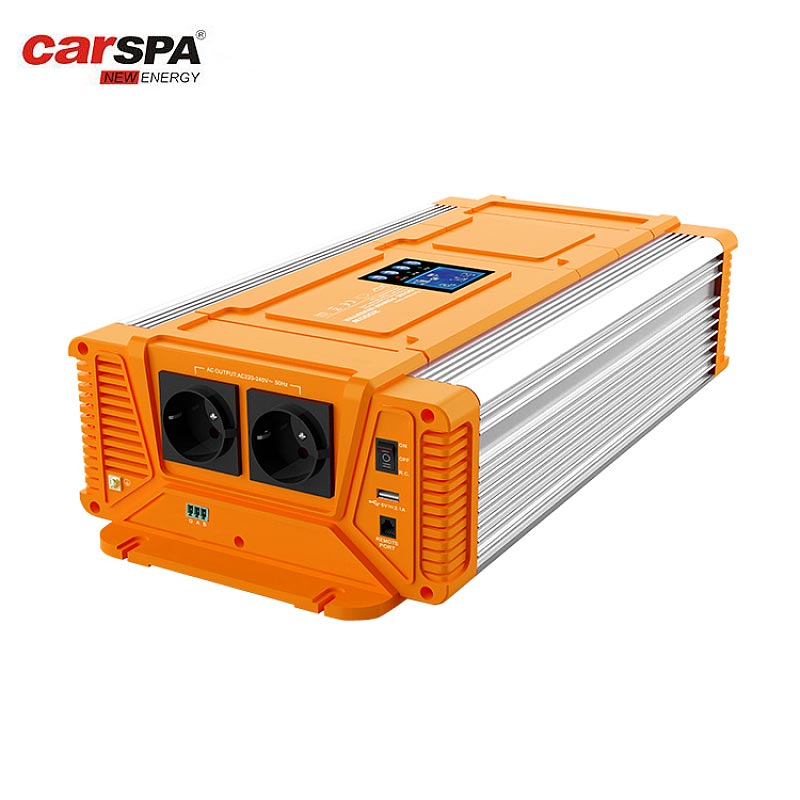Why 1000W power inverters are more popular than 2000W power inverters?
In the mobile power market, power inverters are key devices that convert direct current (usually from batteries) to alternating current. Inverters range in power from a few hundred watts to a few kilowatts, suitable for different usage scenarios. However, among the many choices, 1000W power inverter tends to be more popular than 2000W power inverter. There are many reasons behind this phenomenon worth exploring. This article will analyze in detail from the following aspects: price and cost, applicability and efficiency, energy consumption and battery life, and portability and installation difficulty.
Price and cost
First of all, 1000W power inverters have a price advantage over 2000W power inverters. 1000W power inverters are usually low-cost and suitable for consumers with limited budgets. This is especially important for those who are just starting to use inverters or only need to use them occasionally. Many users do not need higher-power inverters, and 1000W is enough to meet their daily needs. For example, a 1000W power inverter can easily support the operation of laptops, TVs, small refrigerators, and other common devices.
The price of a 2000W power inverter is obviously much higher, suitable for users with higher power requirements. Despite its higher power, this high-power inverter is not cost-effective for general consumers, especially when only a small number of electrical devices need to be supported. Purchasing a 2000W power inverter may mean a considerable expense, and most families and ordinary consumers are not willing to bear the additional financial burden for this.
Applicability and Efficiency
The 1000W power inverter is also more applicable and efficient than the 2000 watt power inverter in actual use. For most families and daily travelers, 1000W of power is enough. Typical household appliances such as light bulbs, fans, mobile phone chargers, laptops, and small TVs can all operate normally with the support of a 1000W power inverter.
More importantly, 1000W power inverters usually perform better in conversion efficiency. Conversion efficiency refers to the amount of energy lost in the process of the inverter converting DC power to AC power. Smaller power inverters are usually more efficient under low load conditions, which means that in daily use, 1000W power inverters can better utilize the battery's energy and reduce unnecessary waste.
In addition, 1000W power inverters are more suitable for general home or RV travel needs. Most families do not need to run multiple high-power appliances at the same time, and 1000W of power is enough to cover the use of most daily appliances. For those who often go camping or RV travel, 1000W power inverters are more applicable and can provide them with stable and reliable power support without adding unnecessary burden.
Energy consumption and battery life
Battery life and energy consumption are important considerations when choosing an inverter. 1000W power inverters also have certain advantages in energy consumption and battery life. First, 1000W power inverters consume less energy under low load, which means that it consumes less power when in standby or light use, thereby extending the battery life.
Battery life is crucial for battery-powered scenarios, such as RV travel or camping in the wild. Using a higher power inverter, such as a 2000W power inverter, will significantly increase the load on the battery, causing the battery power to be consumed quickly, thus shortening the battery life. The 1000 watt power inverter is more suitable for long-term use due to its lower energy consumption, which can effectively extend the battery life and reduce the trouble of frequent charging.
In addition, 1000W power inverters are usually equipped with more efficient cooling systems, which can operate while maintaining lower temperatures. This not only helps to improve the efficiency of the inverter, but also reduces the damage to the equipment and battery caused by overheating, thereby further extending the life of the equipment and battery.
Portability and installation difficulty
1000W power inverters also have significant advantages in portability and installation difficulty. The smaller size and weight make 1000W power inverters easier to carry and install, especially for those who need to move frequently or install in limited spaces. This is particularly important.
In contrast, 2000W power inverters are usually larger and heavier due to their higher power, making them more complicated to install. For ordinary users, this not only increases the difficulty of use, but may also require additional equipment or professionals to install, increasing the cost and trouble of use.
In addition, the design of 1000-watt power inverters is usually simpler and easier to operate. This allows users without professional knowledge to easily get started, quickly install and use without too much technical support. This convenience is an important consideration for many consumers, making them more inclined to choose 1000-watt power inverters.
Conclusion
In summary, 1000-watt power inverter has performed well in terms of price, applicability, energy consumption, portability and installation difficulty, and are therefore more popular with consumers. For ordinary families and daily travelers, 1000-watt power inverters are sufficient to meet their needs, and they also have significant advantages in cost and efficiency. Although 2000-watt power inverters may be more applicable in certain scenarios, their high cost and complexity make them unsuitable for daily use by most consumers. Therefore, 1000-watt power inverters have become a more popular choice in the market with their comprehensive advantages.





